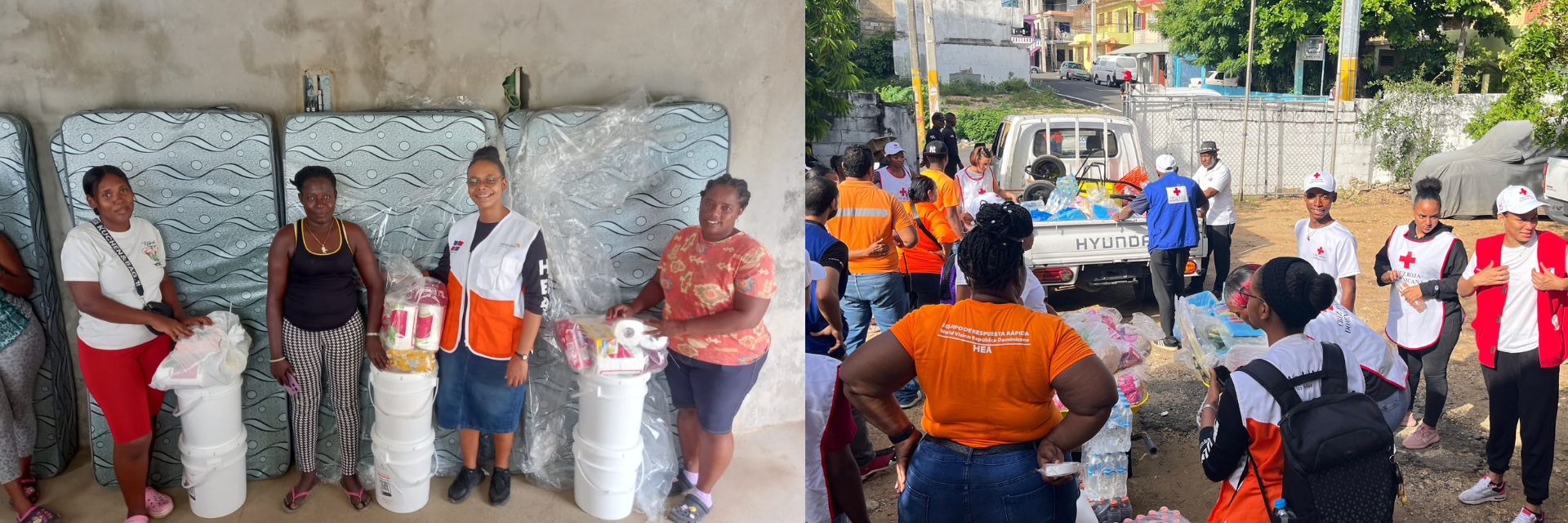
After the floods: How cash support helped one community volunteer rebuild after the floods
When floods tore through her neighbourhood in late 2023, Lisaura lost more than household items – she lost her children’s sense of safety, her own sense of control, and the small comforts of everyday life. But when she received a cash voucher, it brought something back: stability. "That help, helped me buy food for my family, and with the savings I generated, I could replace household items that I had lost in the floods," she said.
Lisaura lives in Quita Sueño, a small community in the municipality of Bajos de Haina, one of the areas hardest hit by the November 2023 floods in the Dominican Republic. The community was already struggling with limited access to health care, recreational spaces, and employment before the disaster.
With support from the Government of Canada and the Humanitarian Coalition through the Canadian Humanitarian Assistance Fund, World Vision Canada provided cash vouchers and launched broader recovery efforts in communities like Lisaura’s, allowing families to address their most urgent needs with flexibility.
"After the impact of the November floods, I can still remember the sound of the rain because of the fear it caused," she said. "I live on the second floor, and I didn't think the water could reach my house... but that lagoon grew so much in the early morning that it rose to the second floor where I live with my family. We had to run out, scared, to save our lives."
The floods swept through the neighbourhood, displacing families, damaging homes, and filling the streets with mud. "We were only left with what we had upstairs," she said. "It was a very difficult experience for my children... they asked me, crying, when they could go to their room and play with their toys. I couldn't find a way to explain to them that we had lost them."
In the days that followed, Lisaura volunteered with World Vision’s response team in support of her neighbours, conducting surveys and helping coordinate with other community members.
"After World Vision started the needs assessment activities, I supported with surveys from the beginning," she explained. "It was very hard for me to see how some of my neighbours' homes were destroyed, others were covered by mud, and too many people were on the streets, especially children, pregnant women and the elderly."
Lisaura participated in training on how best to assess the needs of vulnerable populations and is now better equipped to support her community in future disasters. "Now, I have more knowledge to make more effective assessments," she said. "Because of my bad experience, I can alert my neighbours when meteorological alerts are issued. Above all, I can apply it to myself and my family."
Another initiative she supported – and appreciated – was the community cleaning project, which helped reduce future flood risks. "I liked it because of its quick impact on my community," she said.
"It is normal to receive food, clothing, and detergents in a humanitarian response," Lisaura said. "However, when we received the voucher, it was different because we could buy it according to our needs. Continue implementing this way of supporting families."
Now, she says, she feels better prepared, not only to protect her own children, but to help her neighbours. "It also gives me more tools to support my neighbours and continue contributing to the development of my community."